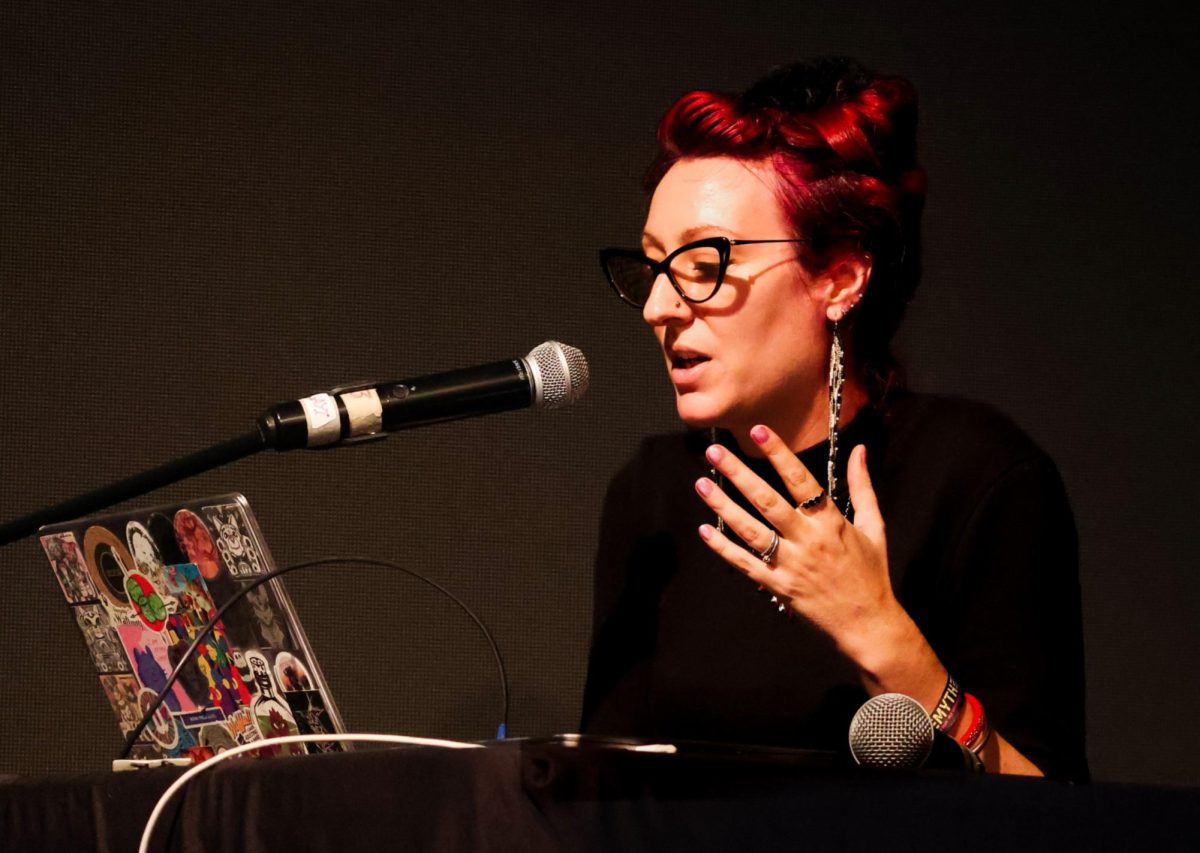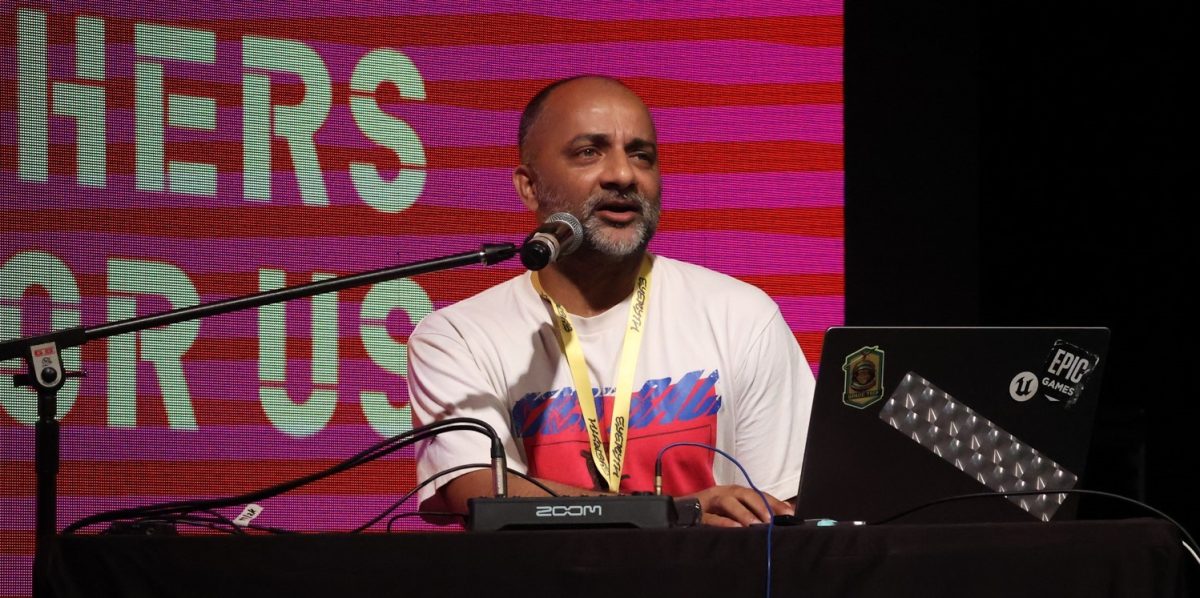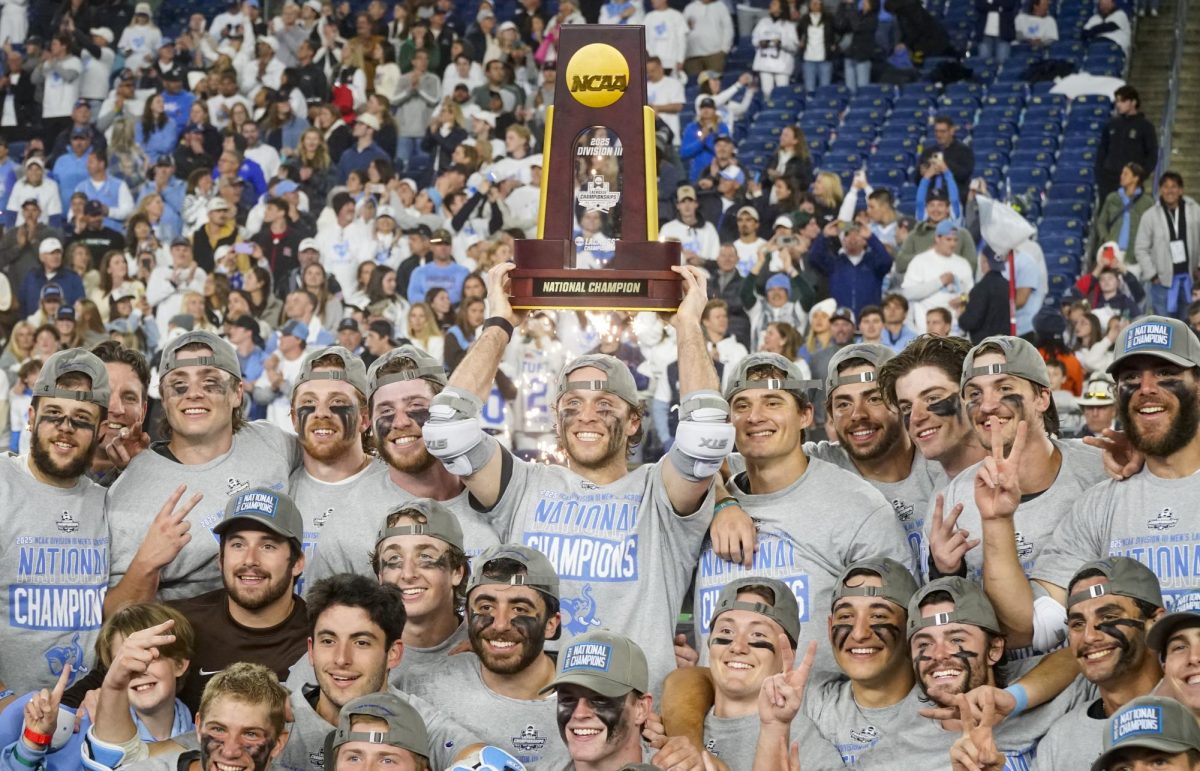Students find rare haven in Latin’s language classes for heritage speakers
Eden Raviv from the Forum at Latin School of Chicago was a winner in Headliners in Education’s February 2023 contest for Best Story of 2022
Osvaldo Valenzuela / Latin School of Chicago
Amanda Valenzuela, now a senior at Latin School of Chicago, visits her family in Colombia as often as she can.
March 9, 2023
(Eden Raviv from Latin School of Chicago was a winner in Headliners in Education’s February 2023 contest for Best Story of 2022. Read the original story in the Forum HERE.)
All of Amanda Valenzuela’s childhood memories are in Spanish. She sang and danced to Colombian, Chilean, and Cuban music, watched dubbed Disney movies, and even when her mother read to her from English books, she read them aloud in Spanish, translating each line. Amanda’s father didn’t speak English well, and although her mother did, she never spoke it with her children. “It was a very central part of my identity,” Amanda said.
But when Amanda started attending her first predominantly white, Chicago private school, her connection to her heritage language—then her only language—suffered. 
“I tried to do that thing where even though I understand Spanish, I respond to my parents in English,” Amanda said. “Why would I speak Spanish if everyone in my new world speaks English?”
But her parents protested. They told Amanda they didn’t understand her when she spoke to them in English. They’d ignore her. Eventually she gave up trying to speak English at home.
Amanda came to Latin as a freshman and as a proficient Spanish speaker. Her desire for Spanish literacy, on the other hand, brought on an entirely different battle. “With my reading, I would get stuck,” she said. “I was a very choppy reader.”
Given that she spoke Spanish regularly at home, Latin asked her to take a different language, one foreign to her. In Amanda’s case, Latin didn’t offer a Spanish class appropriate for her level because of her strength as a Spanish speaker. She was left to improve her Spanish reading skills outside of school.
“I was very frustrated about the fact that I couldn’t read as well as I wanted to,” Amanda said.
Determined to learn, she would visit her local public library with her mom, pick books off the shelf, and, she said, “I just sat there with her, and I read, and I read, and I read.”
“It was a little embarrassing to be in ninth grade and reading like a third grader,” Amanda said. She could not stand the fact that the language most natural to her had become a source of challenge and embarrassment.
She wished Latin could have helped her overcome the barriers of her own language. “It took a lot of work on my mom’s part and on my part to be able to get to the place that I’m at,” Amanda said, noting that she is proud of the reading level she reached on her own.
Upper School Language Department Chair Xavier Espejo-Vadillo said he wishes that Latin could support all students in their pursuit of language proficiency, even if they are already advanced. “Ideally,” he said, “we would love to offer that for any modern language that we teach, but we don’t have the [staffing] to do that, nor the funding.”
Mr. Espejo-Vadillo acknowledged the challenges of budgeting in a school with a wide range of programs across three divisions, and when it comes to the idea of offering more language classes for heritage speakers, he said, “It’s something that I don’t think people in charge of finances always see. Sometimes there is a disconnect.”
“I think we have a very unique and robust program,” Mr. Espejo-Vadillo said. “The teachers we have are very knowledgeable and strong in their language skills and content. What we have seen is that resources and funding that support that have shrunk over the last years. That is obviously a problem.”
According to multiple other faculty members, including those from both the English and History Departments, their budgets have decreased, too.
Chief Financial Officer Michael Szczepanek said, “Unfortunately, we are not an organization with unlimited resources and so choices have to be made with respect to the prioritization of those resources.”
Mr. Szczepanek declined to discuss the causes of decreased departmental budgets, saying, “Ultimately, the allocation of resources across the school is a confidential matter that we do not disclose publicly.” For now, the Language Department remains unable to provide many options to heritage speakers.
Some students with just a little experience speaking one of Latin’s modern languages—Spanish, Mandarin Chinese, or French—at home or with their families are able to take classes in that language to receive credit. Many of them are learning that language for the first time.
Senior Maya Mahoney identifies as Latina but not as a Spanish heritage speaker. Her father is from Bolivia, and her mother speaks Japanese, so the common language in her household is English. She has been taking Spanish classes at Latin since junior kindergarten.
“When we went to Bolivia, knowing at least the basics was really important, because most of my family there doesn’t speak English,” Maya said. “A lot of them like telling stories, and being able to listen and understand is important.”
Sophomore Natasha Benjamin, who grew up speaking French with her grandfather, has similarly been allowed to take French classes for credit. “I learned French very conversationally, rather than academically,” she said. Taking French classes for the first time at Latin has already improved her reading and writing skills. “When I am writing to my grandpa,” she said, “being able to feel confident is a big deal.”
Natasha admitted that she might not have elected to take French if Latin had asked her to choose a different language to fulfill her graduation requirement. Her schedule is busy as is, and doubling up on language would not have been ideal, which is what some students are left to do.
While both Maya and Natasha have been able to study languages at Latin that their families also speak, a second language class might not be helpful to students who really do speak that language at home and are purely looking to improve their literacy skills. Mr. Espejo-Vadillo said, “We don’t want that for our students. We want to make sure we can offer something for them, too.”
Mr. Espejo-Vadillo also noted the challenges of mixing students with experience speaking a language outside of school with those learning it for the first time. While he recognized potential benefits of a class with a diversity of experiences, he said, “It puts pressure on both sides. It puts a lot of pressure on the kids who know the language and know about the culture, but other kids might be feeling disadvantaged.”
For some of the most proficient speakers, Latin has, at times, offered a heritage speaker class. Last year, there was one in Spanish. “It was a little haven in the day for me,” Amanda said. “I loved that class.”
The class is running again this year, but after the initial add-drop period, only two students remain enrolled. Amanda said that she and her classmates spent their time together in the heritage speaker class last year analyzing literature, music, and art, as well as their identities as Latine individuals. “Since it is my first language, I dream in Spanish,” Amanda said. “It’s kind of the default in my brain. The class felt very natural, very safe.”
But Amanda also said, “I think the class is exclusive.” There was only one class offered, but presumably Latin’s Spanish heritage speakers vary in their proficiency. She said it was not accessible if you couldn’t read, speak, and write. Of the six students in the class, Amanda said, “I think that most of us were at the same level. But I know that there are other kids in the school who might have taken the class had they felt like they could.”
The Language Department’s ability to offer these courses depends on staffing and student interest, but if only the most advanced speakers in each language feel the class would be appropriate for their level, then fewer are likely to sign up each year.
Considering language courses at Latin more broadly, Mr. Espejo-Vadillo said, “There is a perception of languages that may be national, but I also find it here at Latin, which is that languages in general are not really important. I think that as a school, we need to do a better job making sure languages have a spot and that it’s something we see as useful and that we appreciate it.”
–Originally published Nov. 16, 2022–






















